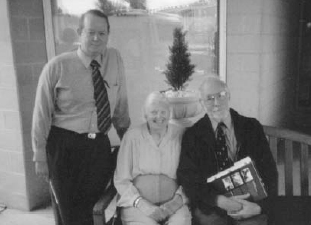"Parents of the Field" Project
 There is always some debate about when the field of conflict analysis and resolution actually started. However, a good case can be made for the argument that it was a group of innovative, individual scholars, confronted by the “Cold War”, who first had the idea that undertaking a comparative and scientific study of conflict, its origins and dynamics could help to provide some lessons about how to manage or even resolve intractable disputes and avoid another world war which undoubtedly would be the last.
There is always some debate about when the field of conflict analysis and resolution actually started. However, a good case can be made for the argument that it was a group of innovative, individual scholars, confronted by the “Cold War”, who first had the idea that undertaking a comparative and scientific study of conflict, its origins and dynamics could help to provide some lessons about how to manage or even resolve intractable disputes and avoid another world war which undoubtedly would be the last.
If there is merit in the argument that our field really “got under way” in the 1950s and 1960s, then inevitably some of the original pioneers — the “parents” of the field — are now nearing the end of their careers, becoming elderly, and need to have their recollections of the early days of the field recorded for the next generations. This recording of efforts to have the new field accepted and developed as a legitimate, practical study is the major task of the “Parents of the Field” project conducted by ICAR Alumnus Dr. Jannie Botes who currently teaches at the University of Baltimore and myself.
The overall strategy is to videotape interviews with the men and women who contributed much to the early days in our field (the 1950s, 1960s and 1970s), in terms of ideas, theories and — above all — practical applications of what increasingly became an alternative to the “resolve conflicts by the use of force and coercion” school of thought that had tended to dominate thinking until that time. To date, progress has been rather slow and, to our regret, we have missed the opportunity to record conversations with some of the important figures from those times who already have passed on — pioneers like Kenneth Boulding, whose book “Conflict and Defense” was an early and still fascinating attempt to formulate a “general theory”; Hendrick van der Merwe, who was instrumental in conducting dialogues between the African National Congress and white South African leaders well before it seemed likely that apartheid in South Africa could possibly end without major bloodshed; and Dr. Bert Roling, the Dutch founder of the International Peace Research Association.
To date, however, we have recorded interviews about early personalities, ideas, contacts, interventions, and linkages with Dr. John Burton in Australia, Dr. Elise Boulding, now in retirement in Massachusetts, Dr. Ralph White, who wrote insightfully about the psychology of Vietnam and other wars, and Ambassador John McDonald, a long-time friend of ICAR and founder of the Institute for Multi- Track Diplomacy. Next we hope to talk with Professor Adam Curle, the Quaker mediator and peace researcher in London; and Dr Anatol Rapoport, one of the pioneers of using game theory to understand conflict dynamics. The list is a long one, but the rewards of making such a record are likely to be rich and worthwhile. Eventually, the edited tapes of these interviews will be available for viewing in the John Burton Library at ICAR.




